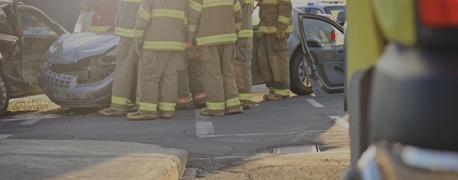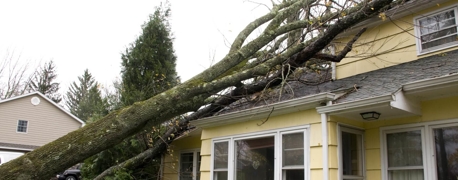Why Do Hurricanes Have Names?

Katrina, Andrew, Sandy, Harvey, Sam, Ida…these are the names of some of the worst storms America has seen in the past decades. But why do hurricanes and tropical storms have names in the first place, and how are they chosen? Let’s dive right in.
The National Oceanic and Atmospheric Administration (NOAA) offers a simple explanation for the naming of hurricanes. “Storms are given short, distinctive names to avoid confusion and streamline communications,” it states on its website. This approach started in the 1950s.
Before our current naming system, many West Indies storms were named after the Catholic Saint’s days on which they made landfall. This approach lasted for hundreds of years.
In the late 19th century, an Australian weatherman named Clement Wragge started naming tropical storms. At first, Wragge named storms based on letters of the Greek alphabet and figures from Roman and Greek mythology. Then, he started using names of local politicians he disliked, essentially dragging their names through the dirt as he discussed them in local forecasts and talked about how they wreaked havoc on the areas they hit.
It was during World War II that meteorologists in the Navy and Air Force began using female names for storms, often paying tribute to loved ones back home. Before that time, hurricanes and tropical storms were tracked by year and the order in which they occurred. In 1945, the National Weather Bureau (now known as the National Weather Service) tried implementing a system that used the military phonetic alphabet, but it proved unworkable when it ran out of options by 1953.
The United States began the standardized practice of giving tropical storms and hurricanes female names in 1953. In 1978, both male and female names were given to storms in the Eastern North Pacific. The following year, this approach was used in the Atlantic and Gulf of Mexico as well.
Naming storms offered a way to make it easier to communicate in writing and over radio broadcasts. It also eliminated past confusion when two storms occurred at the same time in one year, and it reduced the number of errors when noting or discussing a storm. With hundreds of stations, bases, and vessels at sea exchanging information regarding storms, having clear and easy-to-understand names can make all the difference.
The World Meteorological Organization (WMO) is responsible for naming storms. For Atlantic hurricanes and tropical storms, there is a list of names used on a six-year rotation. Each year’s list contains 21 names starting with every letter of the alphabet except for Q, U, and Z. If there are more than 21 named storms in a year, a supplemental list is used.
Hurricane Names Are Retired After the Most Damaging Storms
When hurricanes and tropical storms are so destructive that the future use of their names would be insensitive, WMO will strike them from the list and pick different names to replace them. This process is completed every year at a meeting held by WMO’s international committee and is one of many topics discussed.
In recent years, WMO has stricken several names from its list. The names Fiona and Ian were retired after they caused widespread destruction in the 2022 Atlantic hurricane season. WMO removed Ida after the 2021 hurricane swept through Louisiana, Cuba, and the Gulf Coast, claiming 107 lives and causing an estimated $75 billion in damage. Laura, Eta, and Iota were removed after they struck in 2020. Dorian, Florence, Michael, Harvey, Irma, Maria, Nate, Matthew, Otto, and Joaquin are others that WMO has removed in recent years. Katrina, Ike, and Sandy are three other notable storms that were stricken from the list.
Chances are, if the storm caused significant damage and claimed lives, WMO has removed it.
Helping After Hurricanes
A hurricane, no matter its name, is a powerful force of nature. It may leave miles and miles of destruction in its wake. Survivors must rebuild, but that can be nearly impossible when insurance companies fail to pay claims in a fair and timely manner. At Arnold & Itkin, our hurricane damage attorneys are committed to helping individuals and businesses who have been impacted by hurricanes and other natural disasters. We know how to deal with insurance companies when they try to underpay, deny, or delay valid claims.
To find out more about the ways we can help you, call (888) 493-1629. Your consultation is free and confidential.


